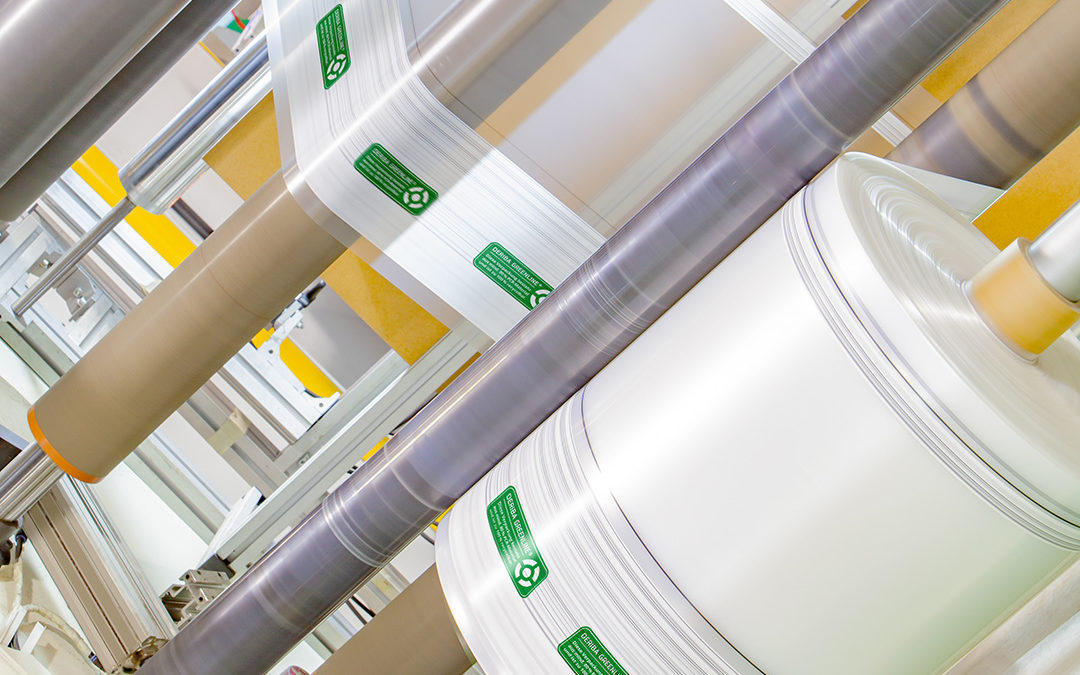“In Europe, one in two people is concerned about plastic waste” revealed a survey by GfK, a German market research organisation. The survey was conducted in 2019, back before the pandemic, but plastic waste and climate change have remained high on the list of people’s top concerns. Not surprising when you consider that in 2018, more than 1.13 billion tonnes of packaging were used in the EU for food and drink alone.
In many cases, however, packaging is essential. The DIN (German Institute for Standardisation) has ascertained, for example, that up to 30 % of locally grown produce in some federal states is wasted due to inadequate packaging and infrastructures. Pointless waste like this is painful!
Plastic or paper? An area where lobbying remains influential
Packaging is important. It’s part and parcel of a product. It offers protection, provides information and gives the consumer peace of mind. But nowadays, we also know that packaging has to be intelligent in terms of environmental protection and sustainability. Thomas Rose, CEO of Anton Debatin GmbH, explains his take on the situation: “The packaging industry has a huge impact on the environment. So huge, in fact, that we can’t afford to sit back and wait for a comprehensive solution to sustainable packaging to be handed to us on a plate. Is paper better or worse than plastic? This is a question currently only being answered by lobbyists. But as a packaging company, we don’t want to waste precious time. We want to be ‘social entrepreneurs’, set a new course in motion, and make all the changes we can to rectify the climate sins of the past.”
This mindset was the major force inspiring DEBATIN’s development of GREENLINE® film for the DERIBA Group. The film is made of at least 80 % PCR material in Blue Angel quality and is up to 100 % recyclable, producing a recyclate with an exceptional degree of purity. “It would be perfect, of course, if we could ensure the loop was always closed – bringing our film into circulation, collecting it, recycling it and then supplying it to the customer again. But it’s more complicated than that in the real world, of course, and the task itself is more complex too,” says Thomas Rose.
Recycling and reliability are not contradictions in terms!
That’s why the DERIBA Group’s development team takes a different approach: “Our GREENLINE® film has an exceptionally high purity grade. We use polyethylene waste from third party suppliers for the base material. GREENLINE® film is certified with the Blue Angel eco-label, which means that any foreign substances it includes are clearly defined. When we developed the product, we placed a strong focus on ensuring that, even though it’s recycled, the film has very good reprocessing properties and outstanding machinability. That’s what makes it such a good choice for customers.”
Moreover, GREENLINE® film will help customers when the new European legislation comes into force. By choosing this recycled product, users can position themselves intelligently and avoid the pending taxes for non-recycled plastic packaging waste. If users choose to dispose of their waste film via Germany’s Green Dot system rather than returning it to the manufacturer, that’s fine too. They’ll still be helping the environment, because the film remains in the circular economy. Other recycling companies are equally capable of handling GREENLINE® film and turning it into PCR granules!
Our recycling kit closes the loop
Wherever possible, we close the loop for our GREENLINE® film. “The DERIBA recycling kit enables our customers to collect their waste polyethylene packaging, return it to us, and thus play an important part in our recycling loop. There are various different ways of combatting plastic waste, and this is a meaningful and effective measure,” explains Frank Rieker, CEO of the RIBA Group (a member of DERIBA) and co-initiator of the GREENLINE® eco-label.
DERIBA offers a genuinely viable solution – that benefits the environment too
Film that bears the GREENLINE® eco-label is currently regarded as one of the best available alternatives to conventional film products – not least because it cuts carbon emissions by up to 45 %. “The Germans are often considered to be world champions in recycling. But the truth is, we’re better at sorting waste than we are at recycling it. Only a tiny proportion of the waste we sort is actually recycled. That’s why our GREENLINE® film and the eco-label that certifies it as planet-friendly are steps in the right direction. Every single piece of plastic waste that doesn’t end up in the ocean or in a waste incineration plant counts if we want to handle packaging waste responsibly and intelligently,” says Thomas Rose. Frank Rieker agrees. “The packaging industry has to find answers to the same huge challenges our customers face,” he says. “And the solution we offer is genuinely viable!”
A concept that adds up to more than just added value
Here at DEBATIN, we believe GREENLINE® film has been one of the biggest influencers on our development as a company. It’s helped us transform ourselves from a company that “merely” creates value to an organisation that has consciously created a concept for what an enterprise CAN be – a responsible member of society that provides people with more than just jobs and products. Consumers are questioning their own approach to responsible, planet-friendly consumption, and they deserve companies that consciously strive to be part of the solution, not part of the problem.
